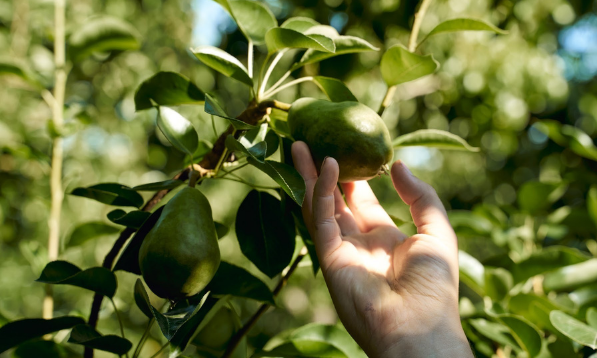
Perfect pair: how a small BC farm is bringing fresh pears to your local produce aisle
August 19, 2021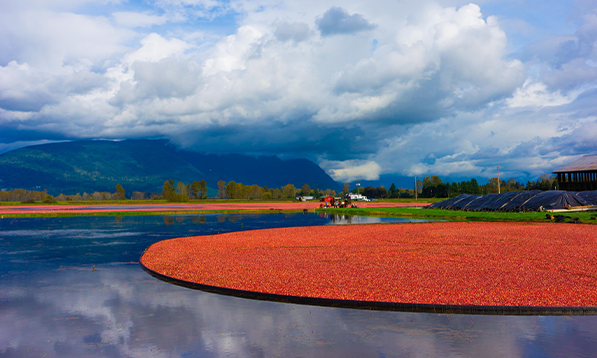
Celebrate with local: your guide to BC Cranberries
October 15, 2021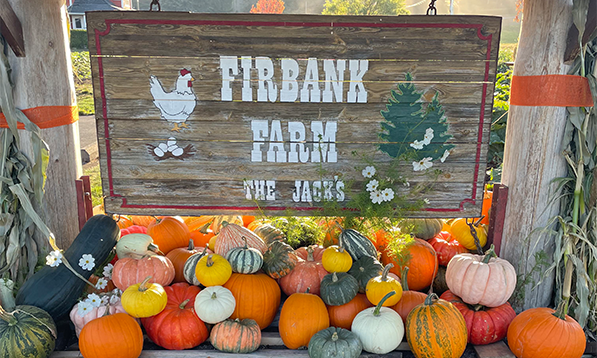
September is BC Chicken month, so we reached out to someone who’s been farming chickens all of his life. Based in Saanich, Lorne Jack is a fifth-generation Vancouver Island farmer. Together with his family, he raises chickens and vegetables at Firbank Farm. Thanks to a unique connection with the Saanich Peninsula Hospital, the family at Firbank Farm also gives back to their community in a special way at harvest time - read on to find out more!
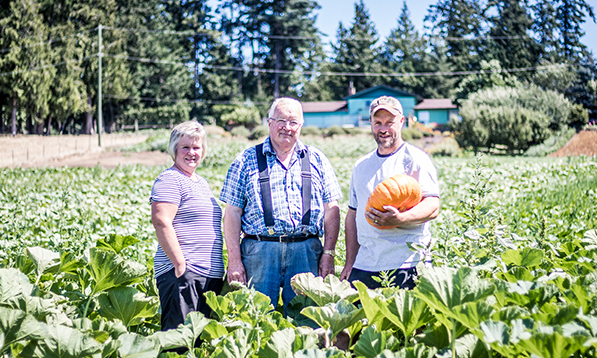
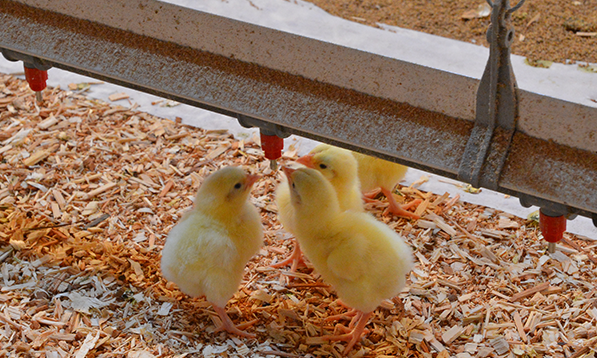
We Heart Local: Can you describe your farm for us? How did Firbank Farm get started and what products do you grow and raise today?
Lorne Jack: We’ve been farming in the area for five generations. In 1993 we moved our operation to central Saanich, which is between Victoria and Sidney. We have two farms there - one 24 acre and one 48 acre. Our business is mainly poultry - we have a layer (egg) farm and then on a separate piece of property we have a broiler (chicken) farm. We also do a bit of market gardening - mostly seasonal vegetables from carrots and kale to chard and cabbage - and greenhouse growing. My daughter and son are both partners in the company and are involved in the day-to-day running of the farm.
WHL: It's BC Chicken Month! Can you talk a little about some of the food safety and animal care standards that you follow as a BC chicken farmer?
LJ: Caring for our animals and producing safe food are our top priorities. For broiler chickens, we follow the standards in the Raised by a Canadian Farmer Animal Care program. We are audited every year to make sure that we are keeping our chickens healthy and comfortable. That includes everything from cleaning the barn, including pressure washing and disinfecting the barn, to get ready for the next flock of birds. For feed, our chickens eat mixed grain that contains no added hormones (the use of hormones and steroids in Canadian poultry production has been illegal since the 1960s). The industry does a great job of enforcing these standards and making sure that consumers get the healthiest chicken or the healthiest egg that can be produced.
In our layer barn, we follow three programs that ensure the high standards Canadians expect from their egg farmers. Start Clean Stay Clean is a food safety program that covers things like the acceptable practices for collecting and storing eggs. The BC Biosecurity Program reduces the risk of diseases and illnesses spreading from farm to farm. Finally, and most importantly, is the Animal Care Program. This program provides protocols for how to care for laying hens from the moment they come to the farm until the moment they leave at the end of their laying cycle.
"Like most farmers, if there’s any profit at the end of the year, you reinvest in the farm and that’s exactly what we did for the last fifty years - there’s always something we think can improve the farm for our animals, land or family." - Lorne Jack
WHL: Your family has been farming in the area for 5 generations. How have things changed since you started farming?
LJ: I’ve been farming all my life, and I’m 77 now. When I think of the way we did things 20 years ago and the way that we do things now, there are more regulations in place. As a child, I remember the chickens were outside, and we would lose the odd one to predators like racoons and coyotes (see image of Lorne with his grandfather’s chickens at around age 3 (circa 1948)). We’ve evolved from there to where we are today, with barns that keep the birds safe and comfortable. Like most farmers, if there’s any profit at the end of the year, you reinvest in the farm and that’s exactly what we did for the last fifty years - there’s always something we think can improve the farm for our animals, land or family. My daughter and son are partners, and my two grandchildren - one of them is 25 and the other one is 19 – are both indicating that the farm is definitely in their blood, so hopefully they will join the business when they are finished school.
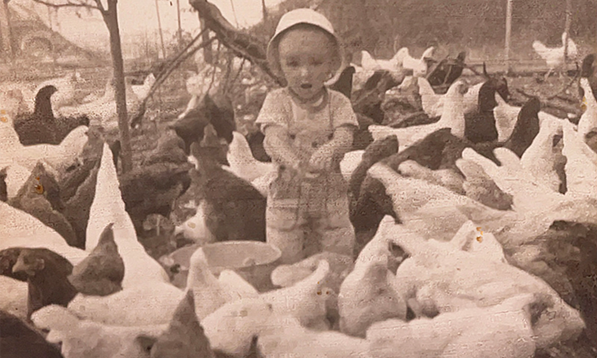
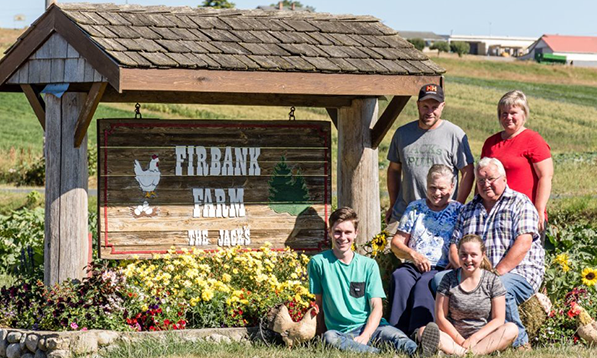
WHL: How are you involved in your local community? We heard you’re holding an event called Celebrate The Harvest?
LJ: Celebrate The Harvest is a fundraiser for the local hospital. It came about because I was on the board of directors for the hospital for about 18 years. Serving on the board of the hospital were some of the best years of my life - the rewards were just so great and you’re working with a real dedicated group of people, from the hospital staff to the donors, to the volunteers. Originally our family took this on as a fundraiser - we decorated some small pumpkins and sold them in the farm market, and the proceeds all went to the hospital.
One thing led to another! Now we host an event where we invite the community to come and celebrate the harvest – several hundred people attend each year. Kids can decorate a pumpkin and draw pictures and win prizes. Entry is all by donation, and donations go to the Saanich Peninsula hospital. To date we’ve raised almost $100,000. It’s a great feeling to support our community. This year it will be held on Saturday October 2nd from 10am to 3pm.
To get to know more local farmers (and for some delicious chicken recipes to help celebrate BC Chicken month!) please follow us on Facebook and Instagram.